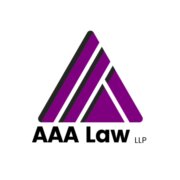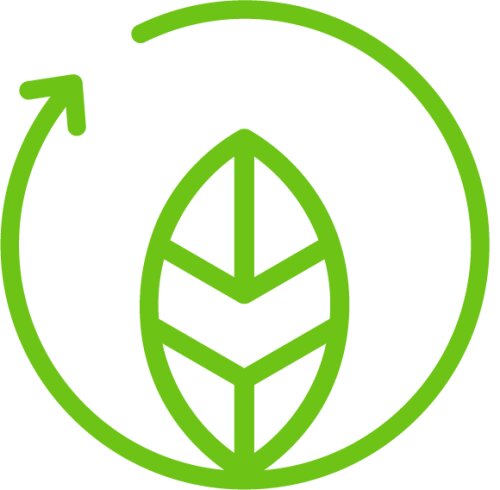Best International Trade Law Lawyers in Toronto
Share your needs with us, get contacted by law firms.
Free. Takes 2 min.
List of the best lawyers in Toronto, Canada
Canada International Trade Law Legal Articles
Browse our 2 legal articles about International Trade Law in Canada written by expert lawyers.
- Anti-Dumping Duties in Canada: A Guide for Exporters
- Anti-dumping and countervailing duties are governed by the Special Import Measures Act (SIMA), which aims to protect Canadian manufacturers from unfair foreign pricing. Two distinct government bodies oversee these cases: the Canada Border Services Agency (CBSA) determines the existence of dumping, while the Canadian International Trade Tribunal (CITT) determines if... Read more →
- Canada's Modern Slavery Act - Supply Chain Compliance Guide
- The Fighting Against Forced Labour and Child Labour in Supply Chains Act requires qualifying Canadian businesses and importers to submit an annual report by May 31 each year. Reporting entities must meet specific size thresholds, including at least $20 million CAD in assets, $40 million CAD in revenue, or an... Read more →
About International Trade Law in Toronto, Canada
International Trade Law in Toronto, Canada, is an intricate system of regulations, agreements, and laws that govern the exchange of goods, services, and capital across international borders. Toronto, as a significant financial and commercial hub in Canada, is home to numerous businesses engaged in international trade. Canada’s approach to international trade is characterized by its commitment to multilateral trade agreements and adherence to international legal standards. The legal framework in Toronto is influenced by federal trade policies, bilateral agreements, and the global trade environment, which makes it essential for trade practitioners to understand both domestic and international legal contexts.
Why You May Need a Lawyer
There are several situations where individuals and businesses may require legal assistance in International Trade Law:
- Compliance Issues: Navigating complex regulatory requirements, including customs duties, trade sanctions, and import/export controls.
- Dispute Resolution: Handling disputes related to trade contracts, intellectual property rights, and breaches of trade agreements.
- Trade Agreements: Understanding and negotiating the terms of trade agreements, including NAFTA/USMCA, CETA, and others.
- Anti-dumping Measures: Addressing issues related to anti-dumping and countervailing duties imposed on imported goods.
- Investment Advice: Seeking guidance on foreign direct investment regulations and related legal protections.
Local Laws Overview
Several key aspects of local laws are relevant to International Trade Law in Toronto:
- Customs Act: Governs the import and export of goods, and it outlines the duties, tariffs, and procedures applicable for traders.
- Trade-marks Act: Provides protection for intellectual property rights crucial for businesses trading internationally.
- CFIA Regulations: Oversees the import and export regulations related to food safety and agricultural products.
- Export and Import Permits Act: Controls the import and export of specified goods, including weapons and other controlled items.
- Investment Canada Act: Regulates foreign investment in Canada, ensuring it benefits the country economically.
Frequently Asked Questions
What is the role of a trade lawyer?
A trade lawyer provides legal advice and representation to businesses and individuals on matters related to international trade, including compliance, dispute resolution, and negotiation of trade agreements.
Do I need a lawyer for every international trade transaction?
While not every transaction requires a lawyer, complex transactions involving large sums, compliance issues, or disputes may necessitate legal expertise.
How can I ensure compliance with Canadian import/export regulations?
Engaging with a trade lawyer or consultant who understands the local regulations and maintaining good relationships with federal regulatory bodies can help ensure compliance.
What are Free Trade Agreements (FTAs) and why are they important?
FTAs are treaties between two or more countries to facilitate trade by reducing tariffs and barriers. They are important for creating smoother and more predictable cross-border trade flows.
Can trade lawyers help with investment-related issues?
Yes, trade lawyers can provide guidance on foreign investment regulations and advise on legal protections related to international investments.
What are the consequences of not complying with trade laws?
Non-compliance can result in penalties, fines, seizure of goods, or revocation of licenses, which can severely impact business operations.
What are anti-dumping duties?
Anti-dumping duties are tariffs imposed on foreign imports priced below fair market value to protect domestic industries from unfair competition.
How are trade disputes resolved internationally?
Trade disputes are often resolved through international arbitration, domestic courts, or specialized dispute resolution bodies like the World Trade Organization.
What are customs duties?
Customs duties are taxes imposed on imported goods, calculated based on value, weight, or quantity, and aimed at protecting local industries.
Is Toronto a good place for international trade businesses?
Yes, Toronto's strategic location, skilled workforce, and robust legal and financial infrastructure make it an ideal place for businesses engaged in international trade.
Additional Resources
Here are some useful resources for legal advice in International Trade Law:
- Canadian International Trade Tribunal (CITT): Provides information on trade laws and dispute resolution.
- World Trade Organization (WTO): Offers resources and training on international trade agreements and regulations.
- Global Affairs Canada: Provides export and import regulations and related information.
- Export Development Canada (EDC): Offers financial and insurance products to assist Canadian exporters and investors.
- Professional Law Firms: Consider specialized trade law firms in Toronto that can offer personalized legal assistance.
Next Steps
If you require legal assistance with International Trade Law in Toronto, consider the following steps:
- Identify Your Needs: Clearly define the nature of your legal concerns to choose the right legal expert.
- Consultation: Reach out to a qualified trade lawyer for an initial consultation to discuss your case and understand potential legal strategies.
- Engage a Lawyer: Hire a lawyer or law firm with expertise in international trade issues aligned with your needs.
- Stay Informed: Keep up-to-date with changes in trade regulations and laws to ensure ongoing compliance.
Lawzana helps you find the best lawyers and law firms in Toronto through a curated and pre-screened list of qualified legal professionals. Our platform offers rankings and detailed profiles of attorneys and law firms, allowing you to compare based on practice areas, including International Trade Law, experience, and client feedback.
Each profile includes a description of the firm's areas of practice, client reviews, team members and partners, year of establishment, spoken languages, office locations, contact information, social media presence, and any published articles or resources. Most firms on our platform speak English and are experienced in both local and international legal matters.
Get a quote from top-rated law firms in Toronto, Canada — quickly, securely, and without unnecessary hassle.
Disclaimer:
The information provided on this page is for general informational purposes only and does not constitute legal advice. While we strive to ensure the accuracy and relevance of the content, legal information may change over time, and interpretations of the law can vary. You should always consult with a qualified legal professional for advice specific to your situation.
We disclaim all liability for actions taken or not taken based on the content of this page. If you believe any information is incorrect or outdated, please contact us, and we will review and update it where appropriate.














